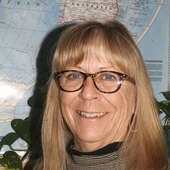Living on the rural free delivery route
Friday, June 8, 2018
Last week I wrote briefly about searching news items for R.F.D Route personal items in the McCook Tribune. Prior to R.F.D., persons living outside of a settlement that had a post office had to either travel to a post office or pay a private carrier to bring their mail to them. Rural farm families were isolated enough without the additional burden of not being able to get those letters from loved ones they had left behind or important legal documents and notices concerning their homesteads. Not everyone that had the power to legislate free rural delivery thought it was a good idea and consequently it took many years to implement but several merchants (such as Sears Roebuck) were in favor of giving the rural residents opportunity to order goods and have them delivered to their homes, no matter how far in the boonies they lived. The nation’s oldest agricultural organization, The National Grange of the Order of Patrons of Husbandry was one of the biggest supporters of rural routes. RFD officially became an official service of the U. S. Postal Service in 1896 and according to some statistics is the largest budgetary portion of the same.
The following personals were printed in the McCook Tribune, the date of each following the quotes. Each was written by an unknown author who lived in the R.F.D. No. 1 area. No. 1 is not identified by location in the paper (after all everyone knew where it was) so perhaps we can determine by the residents named where this route was located.
“The Bessinger family buried a child in the Ash Creek German Lutheran church cemetery this week. Mrs. A. Roedel is not improving satisfactorily. Mr. and Mrs. W. P. Burns received word from Friend, Neb., that twin boys weighing seven and nine pounds had arrived at the home of their daughter, Mrs. S. C. Dragoo, Friday morning, February 2, but Saturday eve received another message that one of the little ones had died.” (February 9, 1906)
“John Schlagel is moving his goods down from near Culbertson, this week, into his new home. Gerald Wilcox weighted and measured out 99 ˝ bushels of corn from one acre on his farm, this winter. His corn averaged over 80 bushels per acre, this last season. Quite a number of horses have died on the route from the mysterious disease which has made inroads on the equines all over the county, this fall and winter. Among the losers, are: Henry Kisker, three, Rudolf Padolski two, William Broomfield, one. W. N. Rogers had a coon party, last Sunday, with J. P. Notley, a great lover of coon-if he thinks it to be veal-as one of the guests of honor. J. P. has views of his own about a neighbor who feeds a guest coon, but Rogers has it on record that J.P. made more of that veal disappear than any other person about the board.” (February 2, 1906)
“The new organ for North Star School has arrived and Henry Rogers will assist with his violin in the music next Sunday. Tuesday of last week was a great day for ducks. The Rogers family bagged 50. Leon being credited with 25.” (November 2, 1906)
“E. E. Rogers, W.E. Bowers and J. W. Roberson are arranging to have phones placed in their farm homes. Joseph Downs lost a fine cow, Tuesday. It is supposed that she was shot in the neck by a hunter, and she had to be killed. W. N. Rogers has an invitation to attend a unique wedding down near or in Exeter, the day before Christmas. The man in the case is a cousin of W. N.’s. The father and two daughters will be married on the same day.” (December 16, 1904)
Don’t forget the cemetery tour this Sunday at all three McCook locations. Scheduled as part of Buffalo Commons, which is also a don’t miss on the McCook scene, it will be held between 2-4 p.m.

